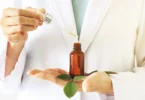Potential Opioid Alternative Not Found in Autopsy
John Harden of Yelm recently spoke to Q13 Fox News about the natural drug kratom being linked to his wife Wendy’s death in wake of the Food and Drug Administration’s advisory for consumers to avoid the substance.
After further investigation, kratom was not found in Wendy’s system at the time of her death according to the Thurston County Coroner.
Kratom is a plant that grows naturally in Thailand, Malaysia, Indonesia and Papua New Guinea and is used as a natural medicine to ease pain, relieve anxiety and is often used as harm reduction for opioid addiction. It is commonly taken orally in capsule form, mixed with food, water or tea. The substance is controversial and the Drug Enforcement Agency almost banned and classified it as a schedule one drug, along with marijuana, heroin and LSD in October 2016 but delayed their decision until the FDA issued a recommendation.
FDA Commissioner Scott Gottlieb issued an advisory Nov. 14 for consumers to avoid using kratom as it was linked to 36 deaths in the nation, but the statement did not say if autopsy reports revealed a mixture of kratom with other drugs.
“Patients addicted to opioids are using kratom without dependable instructions for use and more importantly, without consultation with a licensed healthcare provider about the product’s dangers, potential side effects or interactions with other drugs,” Gottlieb said in the statement.
The substance is growing in popularity and is commonly sold in urban smoke shops, cafes and bars but could be banned by the DEA following the recent statement from the FDA. Kratom has fueled a nationwide debate; some call it a miracle cure and argue that it is as addictive as coffee while others classify kratom just as addictive as heroin. The benefit of using kratom over heroin is the substantially lower risk of overdose. There are 36 kratom linked deaths annually compared to 15,446 heroin overdoses and 34,572 natural or synthetic opioid overdoses other than methadone, according to the National Institute on Drug Abuse.
Two days following the statement by the FDA, Harden spoke to Seattle media and claimed kratom killed his wife, after she used the substance while fighting opioid addiction. Thurston County Coroner Gary Warnock said kratom was not found in her system following the autopsy report. The cause of death was listed as pulmonary and cardiac granulomatosis, a surprising cause of death for a 48 year old according to Warnock. It was found that she was injecting foreign materials into her picc-line (an inserted central catheter) but privacy laws did not allow for Warnock to reveal what foreign materials were injected through the picc-line. The picc-line was intended to be used to inject antibiotics as she was fighting an infection.
“I don’t know why he’s saying the things he’s saying,” said Warnack.
Harden did not respond to repeated requests by the Nisqually Valley News for clarification on the autopsy results.
Wendy’s addiction to opioids began when she was injured in a car accident and was prescribed narcotics to ease the pain, Harden said, adding she took painkillers to get back to work as a registered nurse because she was a “warrior’ and felt passionately about the importance of her job but had difficulty getting off of opioids after the accident. Harden said she turned to kratom more than four years ago along with many alternative naturopathic medicines that were supposed to help with pain but said kratom affected Wendy’s gentle and compassionate personality.
Following Wendy’s death, Harden found kratom in her purse and many baggies around the house filled with it and believes she was injecting kratom into her bloodstream through a picc-line. Although Warnock said kratom was not found in her system, Harden said he is “99 percent sure” kratom was going through her picc-line.
Kratom is banned in 10 states but is not banned in Washington state nor is it federally illegal to sell or possess. It is often sold in capsules and powders. Yelm smoke shops J&M Tobacco and Vape and Yelm Smoke Plus said they do not carry kratom.







